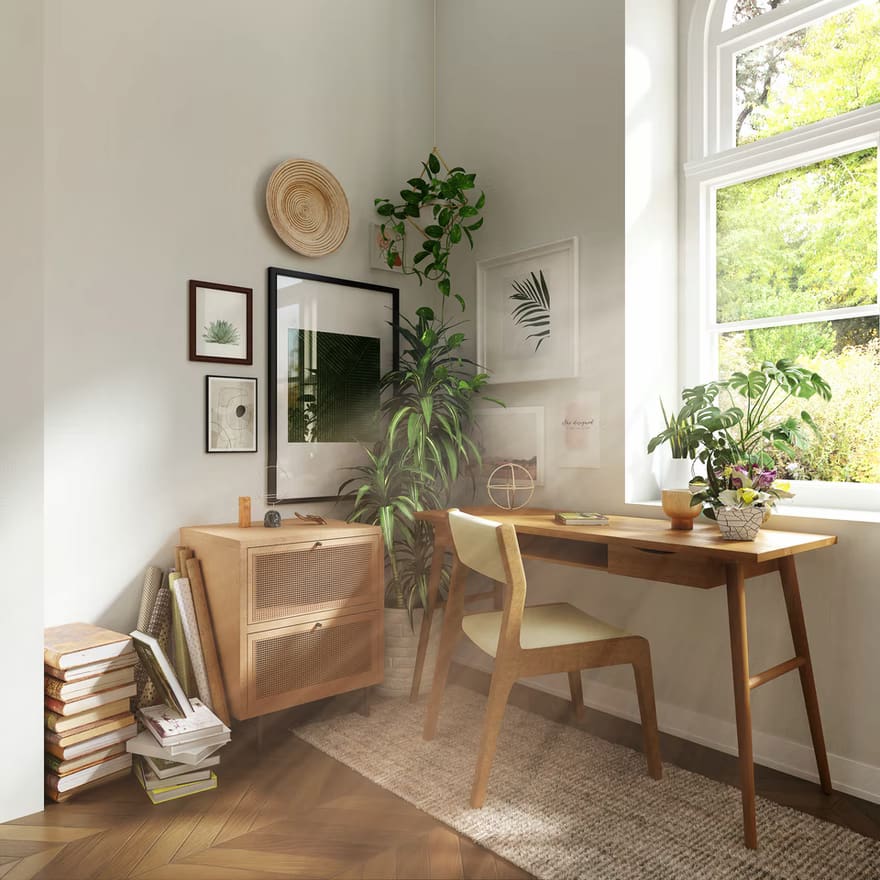15 Important Tips You Need to Know Before Living Alone for the First Time

Every life is defined by its respective elements of risk: a fledgling leaving its nest on a maiden flight, a grizzly searching for calories before hibernation, or you living alone in a new city for the first time.
On the surface, these three situations may seem abundantly different. However, each is a life-defining experience where the subject is exposed to an exhaustive well of growth and potential.
If you have never lived alone before, you probably haven’t had the need to make a budget, cultivate independence or grapple with the overwhelming paradox of loneliness versus freedom.
You probably also haven’t had the opportunity to decorate however you see fit, make new friends in a new city or explore a routine that truly allows you to make the most of your life.
It’s okay if you are nervous—that is how you are supposed to feel. But living alone for the first time doesn’t have to be scary. Keep reading to calm your nerves, feel safe and learn 15 tips you need to know before living alone for the first time!

15 Tips for Living Alone for the First Time
- Make a Budget
- Get a Spare
- Decorate Your New Home
- Keep Things Tidy
- Become Self-Reliant
- Don’t Isolate Yourself
- Meet Your Neighbors
- Explore Your Neighborhood
- Purchase Essentials in Bulk
- Master Shopping for One
- Take Up a New Hobby
- Keep a Notepad of Emergency Numbers
- Make New Friends
- Invite People In
- Enjoy Solitude
1. Make a Budget
After you have gone over your lease with a fine-tooth comb and moved into your new place, you will need to make a budget. Compiling a master budget that includes fixed and variable expenses will allow you to manage your spending and obtain financial freedom while living solo. But how do you go about making a budget?
How to Make a Master Budget:
- Calculate your income (job + side-hustle + passive income + etc.)
- Draft a list of fixed monthly expenses (rent, car payments, utilities, etc.)
- Determine a spending value for variable expenses (groceries, gasoline, etc.)
- Keep receipts and record spending
- Adjust your budget after the first month
- Stick to saving or paying off a certain amount of debt each month
By following the steps listed above, you can easily draft a master budget to take control of your expenses.
Pro-advice for living “Han” Solo: Use Excel, Sheets or Numbers (for you Mac purists) to track your progress and record your monthly spending.
2. Get a Spare Key(s) Made
Getting a spare key made is a good idea for even the most cautious renters and organized homeowners, keys just have a way of getting lost or left behind.
If you live in an apartment complex, you should have been granted multiple keys upon moving in. However, if you just bought your first house or are renting a property, you may need to visit your local hardware store to have a spare made. While you are there, grab a set of blank keychains, so you can label your spare before leaving it with a trusted neighbor, friend or coworker.
3. Decorate Your New Home How You See Fit
Your new place should feel like home. And the best way to turn a cold studio apartment into a cozy living situation is by decorating. Personal interior design elements have been known to have positive psychological effects, and decorating doesn’t have to be expensive.
If you are looking to decorate your home on a budget you can check out local thrift stores, budget-minded department stores (HomeGoods), or even Saturday yard/garage sales.
Pro-advice for living “Han” Solo: Do you find yourself proclaiming, “I could do that,” when visiting a museum or art exhibit. Well, here is your chance to prove it. Outfitting your home with self-made décor is another option for decorating on a budget if you are interested in getting creative.

4. Keep Things Tidy (& Organized)
Without anyone else to monitor your cleanliness, it can be tempting to wash dishes “when you get around to it” or leave dirty clothes piling up in the corner. However, tidiness equals happiness. So, don’t think twice about cleaning up a mess or organizing clutter when you notice it.
A good rule of thumb is to work the five-minute rule into your daily routine. Basically, if you notice something that will take less than five minutes to get done, you should complete the task right then and there.
5. Become Self-Reliant
Whether you are living alone at 20 or living alone at 60, becoming self-reliant is vital. This transformation can be empowering and very helpful when wondering how to cope with living alone.
There are several ways you can become more self-reliant while living alone at any age. Overall, you should adopt a healthy strategy for interacting with problems and challenges. For example, when confronted with a problem or hardship you should identify, adapt, learn, and then conquer, the problem yourself. Of course, there are some situations where calling upon help is necessary, but think first before relying on someone else to solve a problem you can handle yourself.
Easy Ways to Become More Self-Reliant:
- Purchase a tool kit and keep it in your home
- Learn how to fix leaks and make other minor repairs on your own
- Learn to cook for yourself and enjoy your meals
- Learn how to change a tire, jump-start a car and change a vehicle’s oil
- Plant a garden or buy house plants and take care of them
- Adopt a pet and instill more responsibility into your life
6. Don’t Isolate Yourself from Others (or Opportunities)
Becoming more self-reliant doesn’t mean becoming a lone wolf. Self-reliance can help you navigate life but so can good friends and a willingness to capitalize on opportunities.
When living alone for the first time, it can be tempting to cave into isolation, especially when living in a new city. However, you should always remain vigilant and seek out opportunities to socialize and meet new friends. Living alone is more enjoyable when you have friends to share moments and activities with.
7. Meet Your Neighbors (& Be Kind to Them)
For many, neighbors can directly affect a living situation. We have all heard horror stories. However, it is still always a good idea to get to know your neighbors. These people might not become your best friends, but they may become a great resource for an extra pinch of sugar, advice or even just a friendly “how are you?” every now and again.
8. Explore Your Neighborhood
Your new living space is larger than your apartment or home. Spend time exploring your local neighborhood to get better acquainted with your surroundings and things to do in the area. Try taking a walk instead of driving. This strategy will allow you to take in more of the landmarks and geography surrounding your dwelling.

9. Purchase Essentials in Bulk
You don’t have to be searching “how to survive during a zombie apocalypse” to stock up on essential foods and supplies. One of the best tips for living alone for the first time is to always have essential supplies on hand. Supplies you should purchase in bulk include nonperishable foods, toiletries, paper towels, cleaning supplies and other items you will use daily.
10. Master Grocery Shopping for One
In addition to purchasing essentials in bulk, you should also modify your shopping list to buy less. If you are used to living with a large group of people, you may have become used to a weekly grocery store binge. However, while embracing single living, it is unlikely you will be able to eat the same amount of food before it goes bad. Good news: shopping smaller, wasting less and buying less will save you money (remember that budget?)!
11. Take Up a New Hobby
Once you have a solid routine organized, you will likely be able to carve out some time each week for a new hobby or activity. Not only will this hobby allow you the freedom to learn something new, but it is also a great opportunity to meet like-minded people.
Pro-advice for living “Han” Solo: Joining a recreational sports team, attending trivia night, meeting up with a hiking group or volunteering your time for a good cause are all great ways to learn a new skill and simultaneously make friends.
12. Keep a Notepad of Emergency Numbers
Yes, you are living alone, but that doesn’t mean you won’t need help occasionally. You should write down all your emergency numbers and contacts in one place. Keeping a notepad of emergency numbers will allow you to feel safe in your new home.
Emergency Contacts to Include on Your List:
- Building Manager or Landlord
- Local Police Department
- Local Fire Department
- Local Hospital
- Primary Doctor
- Poison Control: (800) 222-1222
- Veterinarian
- Utilities
- Neighbors
We know that 9-1-1 is pretty much the go-to emergency number for police and fire services, but when there’s not a crime involved or it’s a parking or noise complaint, you’ll want to dial the non-emergency line instead.
13. Make New Friends
If you haven’t already, by taking up a new hobby, exploring your neighborhood or through work, you should try to make new friends. If you are not having any luck in-person, maybe try out a friend-finding app or join a social media group.
It may seem easier to meet new friends in a big city, but it can be challenging to meet new friends anywhere. It’s important that you stay positive and approach every situation as an opportunity to meet new people and enrich your life by socializing.
14. Invite People In (& Leave Others Out)
One of the best advantages of living alone for the first time is the ability to decide who comes into your space. This means you can decide to have friends over for a dinner party or avoid having people in your home.
If you do have a solid group of friends you have connected with, you can have them over to celebrate your new place and break it in as a social space. This is a great way to appreciate your new space as more than just a place where you sleep.
15. Enjoy Solitude
Enjoying solitude doesn’t mean you always want to be alone, but it does mean truly appreciating having time to yourself. Living alone for the first time presents a great opportunity to take the time to get to know yourself better. What do you want out of life? What are your interests? Motivations? Desires?
The answers to these questions might surprise you once you give yourself time to truly experience and enjoy solitude.
FAQS
Q: How do you prepare to live alone for the first time?
A: Living alone for the first time can be equally exciting and intimidating. Follow these tips to embrace single living and carve out a life you enjoy:
- Make a Budget
- Get a Spare
- Decorate Your New Home
- Keep Things Tidy
- Become Self-Reliant
- Don’t Isolate Yourself
- Meet Your Neighbors
- Explore Your Neighborhood
- Purchase Essentials in Bulk
- Master Shopping for One
- Take Up a New Hobby
- Keep a Notepad of Emergency Numbers
- Make New Friends
- Invite People In
- Enjoy Solitude
Q: How to cope when living alone after a divorce?
A: Living alone after a divorce or break-up will require many adjustments. You will not only have to learn how to live alone again, but you will also need to take time to be honest with yourself about how you are feeling regarding the separation. To cope, you should embrace the silence, develop a routine, empower yourself by becoming self-reliant, say “yes” to more friends and opportunities, and take time to plan out what you want out of the next stage of your life.
Q: How do you pass time when living alone?
A: To pass time while you are living alone, you should take up a new hobby, join a new group and try to make new friends. One of the best parts of living alone is having the ability to control what you do and when you do it. Make the most out of your free time by developing a routine that allows you to thrive mentally and physically.
Wrapping Up: Tips for Living Alone for the First Time
Living alone for the first time presents several challenges and opportunities for growth. Now that you have read about some of the best tips for living alone for the first time, you should be able to limit the former and capitalize on the latter.
If you are looking for more space in your new residence, consider renting professional storage from Store Space Self Storage. We have a fleet of facilities located across the country. To find the professional storage facility nearest to you, use or storage location finder.






